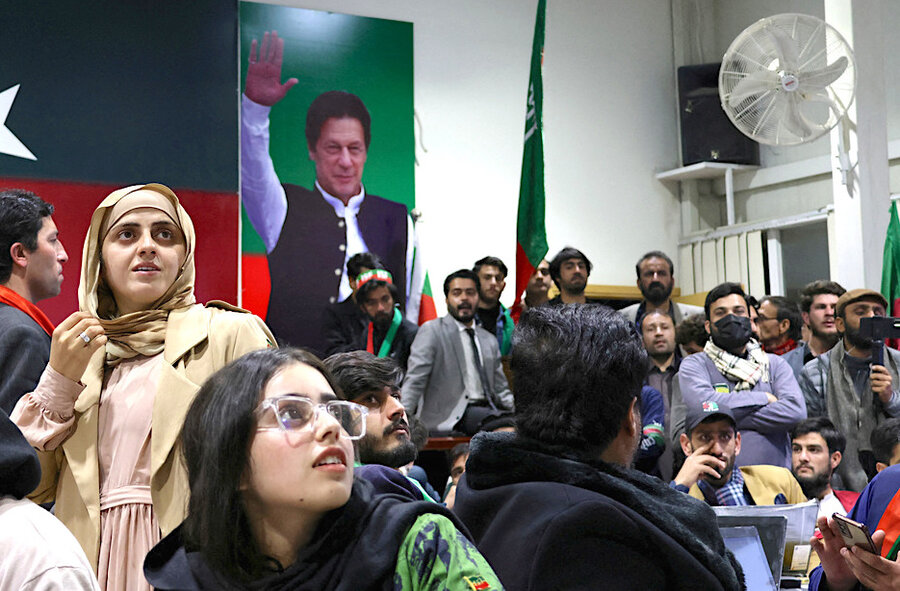Democracy’s foot soldiers in Pakistan
Loading...
A little over a year ago, the departing head of Pakistan’s military, Gen. Qamar Javed Bajwa, closed out a long career on a rare note. “The time has come for all political stakeholders to set aside their ego” and take responsibility for their part in the country’s history of instability and corruption, he said. “We need to reject this behaviour.”
That call for humility and integrity in public service may have planted a mental seed that is now germinating in the outcome of last week’s national elections. Voters defied the military’s efforts to bar politicians and parties it opposed. They are demanding the courts investigate evidence of ballot fraud. Women and youth in particular put individual agency and dignity before cynicism and despair.
“As a Pakistani, it was profoundly empowering to witness the collective outcry against injustice manifested through the ballot,” Hashim Ali Doger, a young voter from Lahore, told CNN. Another voter, Manahil Ahmed, said Pakistanis “have come to the one realization [they] previously had always struggled with, which is that all [political] power truly only rests in their will.”
Pakistan has a long history of democracy interference marked by corruption, family dynasties, and the military’s constant meddling in politics. Days before the Feb. 8 vote, former Prime Minister Imran Khan – already incarcerated on corruption charges widely held as politically motivated – and his wife were sentenced to 14 years in prison. The military’s favored candidate in 2018, he turned critical of the army’s influence in foreign policy and was ousted in 2022.
Mr. Khan and his party were barred from the elections last week. But he remains highly popular. Candidates from his party, running as independents, unexpectedly won 97 seats in parliament – well below the number needed to form a government outright, but significantly more than the military’s preferred parties.
Voter turnout was marginally lower than in 2018, according to official results released today. But of roughly 60 million who cast ballots (48% of all voters), 44% were under the age of 35. Mr. Khan’s party fielded 53 female candidates, the most of any party.
The rise of civic participation among younger and female Pakistanis coincides with other trends reshaping a society striving for economic stability and accountable governance. Innovation is booming. The country’s technology sector posts record growth year after year, driven by a population in which more than 64% are under the age of 30. Social media enabled Mr. Khan to boost voter enthusiasm from prison and were a bulwark against campaign disinformation.
On the governance side, constitutional reforms enacted in 2018 to empower local government have nurtured greater public confidence in democracy at the grassroots through transparency, improved services, and funding for civil-society groups.
The surprise outcome of last week’s vote has added momentum to that entrepreneurial and civic ferment. Pakistan’s political parties must now forge a new government through consensus and compromise. “Voters have upset the games and the calculations of Pakistan’s political managers,” political analyst Nasim Zehra told the Monitor, referring to the military and its preferred political figures. They are insisting on a future built on unity and integrity.





